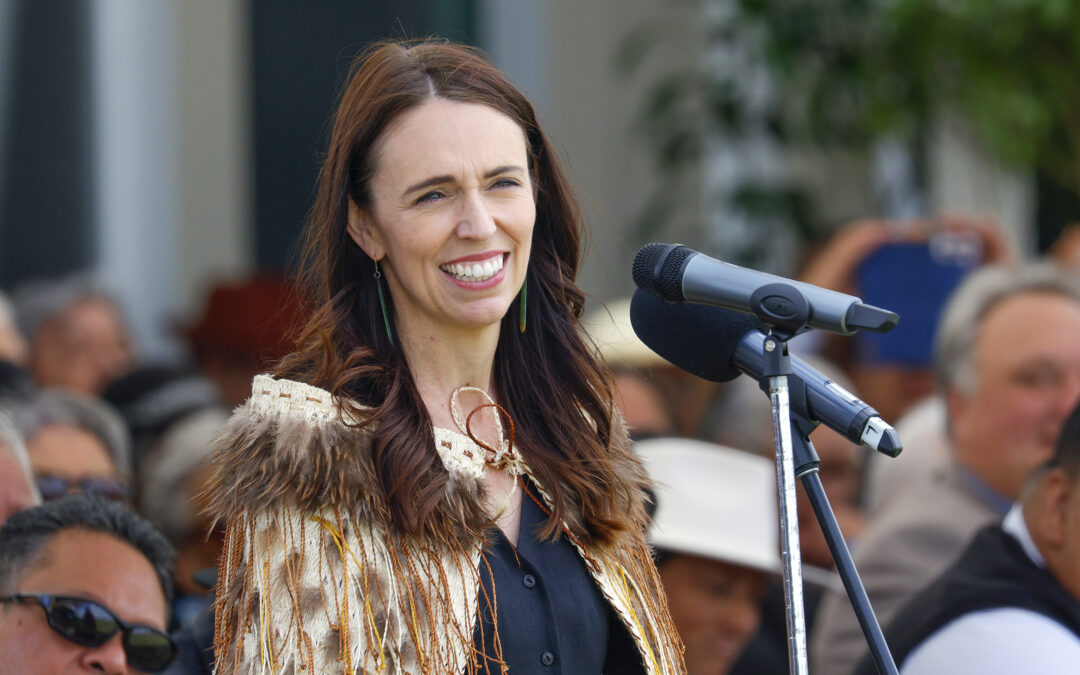Jacinda Ardern recently spoke on the occasion of Rātana, delivering her final public address as Prime Minister of New Zealand, before her successor Chris Hipkins is sworn into office.
“Ngā mihi nui ki a koutou katoa, thank you from the bottom of my heart for the greatest privilege of my life.”
Showing Us Her Trademark Style
Because leaders deliver speeches on a regular basis it is important that listeners observe coherence. When the leader speaks, do they demonstrate the traits that you have come to know?
Part of the reason Jacinda Ardern has attracted so much international attention is the fact that she demonstrates a very different approach to leadership. Her style is a direct reflection of who she is – empathetic, emotional, and compassionate. Her response to the challenges she faced as Prime Minister of New Zealand allowed us to see those traits in action. During the Christchurch attacks, the Covid-19 pandemic, and the Whakaari eruption local and global audiences saw Ardern in action, living and speaking in a manner that reflected and reinforced the attributes she espoused.
In her final speech, she makes explicit mention of the values she tried to live throughout her leadership. Everything about her delivery of this speech is consistent with what we have come to expect and believe about her character. The coherence of the words with her actions and expression allows us to trust that she is who she presents herself to be – a fact that is not to be taken for granted in the world of politics.
“For my part, I want you to know that my overwhelming experience in this job of New Zealand and New Zealanders has been one of love, empathy and kindness. That is what the majority of New Zealand has shown to me …”
Even those who disagree with Ardern’s politics and policies would likely accept that she has been a consistent, values-led Prime Minister.
She Is Gracious
Ardern’s final speech demonstrates a graciousness towards her electorate, her successor and her party. She doesn’t use her platform to take potshots at the opposition and she avoids taking all of the limelight for herself. There is an interesting juxtaposition of the charmingly indulgent line; “if you’re going to leave, I say leave with a brass band” and her ultimate message:
“As leader of the Labour Party I only carry the baton for a time. The relationship between Rātana and Labour is much deeper than individuals but it will carry and continue and be strengthened.”
Consider What Is Not Said
The tone of Ardern’s final speech is appropriate to the occasion and the context. The many ‘thank-you’s’ and nods are somewhat expected. But if you listen closely, what Ardern also manages to do in this address is allude to her critics with the most subtle of tricks – not mentioning them at all.
When she says “That is what the majority of New Zealand has shown to me,” referring to love, empathy and kindness – we are left wondering about the minority. What is lurking in the dark places where she chooses not to shine her light?
The audience is left with an oblique sense that she has faced down the haters but won’t give them oxygen by mentioning them on this day. She shows no desperate need to win the final point.
And then when she says;
“I want you to know that I leave with a greater love and affection for Aotearoa New Zealand, and its people – than when I started. I didn’t think that was possible.”
And so, Jacinda Ardern steps down as Prime Minister making the point that the positive values which she always tried to exhibit, have won in the end.
Quite a legacy.
What She Said is an award-winning bestseller that examines 40 remarkable speeches by women. Including the address to Parliament delivered by Jacinda Ardern in the aftermath of the Christchurch mosque attacks. Grab your free chapter now or buy the book at Amazon, Booktopia, or a range of other fine retailers.
If you are interested in improving communication capability and confidence for you or your team, get in touch.


